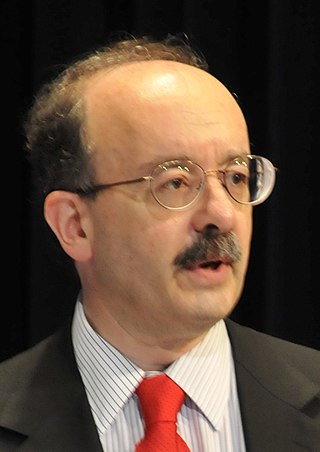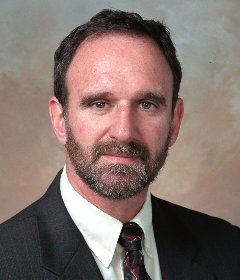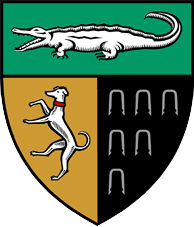Related Research Articles

The Natural Resources Defense Council (NRDC) is a United States-based 501(c)(3) non-profit international environmental advocacy group, with its headquarters in New York City and offices in Washington D.C., San Francisco, Los Angeles, Chicago, Bozeman, India, and Beijing. The group was founded in 1970 in opposition to a hydro-electric power power plant in New York.

Amory Bloch Lovins is an American writer, physicist, and former chairman/chief scientist of the Rocky Mountain Institute. He has written on energy policy and related areas for four decades, and served on the US National Petroleum Council, an oil industry lobbying group, from 2011 to 2018.

Samuel Augustus Nunn Jr. is an American politician who served as a United States Senator from Georgia (1972–1997) as a member of the Democratic Party.

Stanford Law School (SLS) is the law school of Stanford University, a private research university near Palo Alto, California. Established in 1893, Stanford Law had an acceptance rate of 6.28% in 2021, the second-lowest of any law school in the country. Since October 2023, Robert Weisberg has served as its dean.

Martin Edward Hellman is an American cryptologist and mathematician, best known for his invention of public key cryptography in cooperation with Whitfield Diffie and Ralph Merkle. Hellman is a longtime contributor to the computer privacy debate, and has applied risk analysis to a potential failure of nuclear deterrence.

Yale Law School (YLS) is the law school of Yale University, a private research university in New Haven, Connecticut. It was established in 1824. The 2020–21 acceptance rate was 4%, the lowest of any law school in the United States. Its yield rate of 87% is also consistently the highest of any law school in the United States.

Leon Edward Panetta is an American politician and government official who has served under several Democratic administrations as Secretary of Defense (2011–2013), director of the CIA (2009–2011), White House Chief of Staff (1994–1997), director of the Office of Management and Budget (1993–1994), and as a U.S. Representative from California (1977–1993).

Denis Allen Hayes is an environmental advocate and an advocate for solar power. He rose to prominence in 1970 as the coordinator for the first Earth Day.

Ashton Baldwin Carter was an American government official and academic who served as the 25th United States secretary of defense from February 2015 to January 2017. He later served as director of the Belfer Center for Science & International Affairs at Harvard Kennedy School.

Sidney David Drell was an American theoretical physicist and arms control expert.

John Edgar Bryson is the former United States Secretary of Commerce, the 37th person to hold the post since its establishment in 1913. Prior to this, he served as the chairman, chief executive officer and president of Edison International, the parent company of Southern California Edison and as director of The Boeing Company. He co-founded the Natural Resources Defense Council with fellow Yale alumni in 1970.

James Eugene Goodby is an author and former American diplomat.

Steven Chu is an American physicist and former government official. He is a Nobel laureate and was the 12th U.S. secretary of energy. He is currently the William R. Kenan Jr. Professor of Physics and Professor of Molecular and Cellular Physiology at Stanford University. He is known for his research at the University of California, Berkeley, and his research at Bell Laboratories and Stanford University regarding the cooling and trapping of atoms with laser light, for which he shared the 1997 Nobel Prize in Physics with Claude Cohen-Tannoudji and William Daniel Phillips.
Peter A. Bradford is a former member of the U.S. Nuclear Regulatory Commission who teaches energy policy and law at the Vermont Law School. He is the author of Fragile Structures: A Story of Oil Refineries, National Security and the Coast of Maine and has written many articles. He served on various advisory panels and expert groups relating to nuclear power. He participated in a 1968 Ralph Nader-sponsored study of the Federal Trade Commission. Bradford has a law degree from Yale Law School.
The Stanton Foundation is a private foundation established by Frank Stanton, a long-time president of Columbia Broadcasting System ("CBS"). The Foundation focuses primarily on three areas in which Stanton was unable to complete his philanthropic plans within his lifetime: (1) supporting the First Amendment and creating a more informed citizenry, particularly in regard to civic issues, (2) supporting policy research in international security, with special emphasis on nuclear security and (3) advancing canine welfare. The Stanton Foundation is primarily a "no unsolicited proposals" foundation, although it operates several open application programs as detailed on its website.

George Pratt Shultz was an American economist, businessman, diplomat and statesman. He served in various positions under two different Republican presidents and is one of the only two persons to have held four different Cabinet-level posts, the other being Elliot Richardson. Shultz played a major role in shaping the foreign policy of the Ronald Reagan administration.

The Heinz Awards are individual achievement honors given annually by the Heinz Family Foundation. The Heinz Awards each year recognize outstanding individuals for their innovative contributions in three areas: the Arts, the Economy and the Environment. The award was established in 1993 by Teresa Heinz, the chairwoman of the Heinz Family Foundation, in honor of her late husband, U.S. Senator H. John Heinz III. The Heinz Award is considered to be among the largest individual achievement prizes in the world.

Deborah Lynn Rhode was an American jurist. She was the Ernest W. McFarland Professor of Law at Stanford Law School and the nation's most frequently cited scholar in legal ethics. From her early days at Yale Law School, her work revolved around questions of injustice in the practice of law and the challenges of identifying and redressing it. Rhode founded and led several research centers at Stanford devoted to these issues, including its Center on the Legal Profession, Center on Ethics and Program in Law and Social Entrepreneurship; she also led the Michelle R. Clayman Institute for Gender Research at Stanford. She coined the term "The 'No-Problem' Problem".

John Paul Holdren is an American scientist who served as the senior advisor to President Barack Obama on science and technology issues through his roles as assistant to the president for science and technology, director of the White House Office of Science and Technology Policy, and co-chair of the President's Council of Advisors on Science and Technology (PCAST).

Mariano-Florentino "Tino" Cuéllar is an American scholar, academic leader, public official, jurist, and nonprofit executive currently serving as the 10th president of the Carnegie Endowment for International Peace. He was previously a Justice of the Supreme Court of California, the Stanley Morrison Professor of Law at Stanford University and director of Stanford's Freeman Spogli Institute for International Studies, co-chair of the U.S. Department of Education's Equity and Excellence Commission, and an executive branch official in the Clinton and Obama administrations. His publications address problems in American public law, international affairs and international law, artificial intelligence, public health and safety law, and institutions and organizations. He serves on the State Department's Foreign Affairs Policy Board. A member of the American Academy of Arts and Sciences and the National Academy of Sciences Committee on the Social and Ethical Implications of Computing Research, he serves as chair of the board of the William and Flora Hewlett Foundation. He was born in Northern Mexico.
References
- ↑ Kate Galbraith. A New Energy Regulator Takes the Helm Archived 2009-01-31 at the Wayback Machine The New York Times, January 26, 2009.
- ↑ "Ralph Cavanagh receives the Heinz Award". Archived from the original on 2009-12-15. Retrieved 2009-10-27.
- 1 2 Ralph Cavanagh Archived 2009-08-24 at the Wayback Machine
- ↑ "Ralph Cavanagh | Bipartisan Policy Center". bipartisanpolicy.org. Retrieved 2024-02-10.
- ↑ "California promised to close its last nuclear plant".The Los Angeles Times, April 29, 2022.